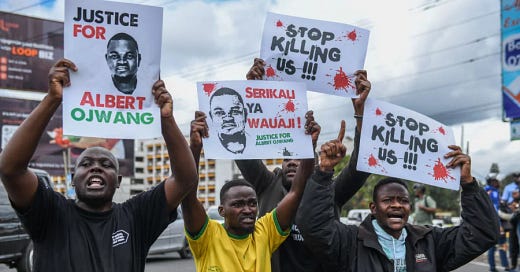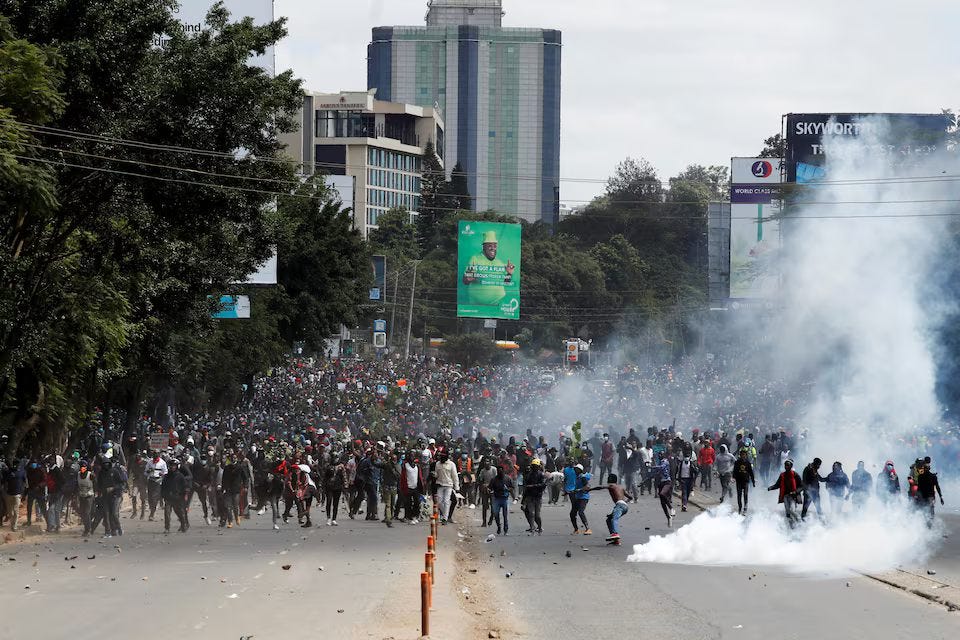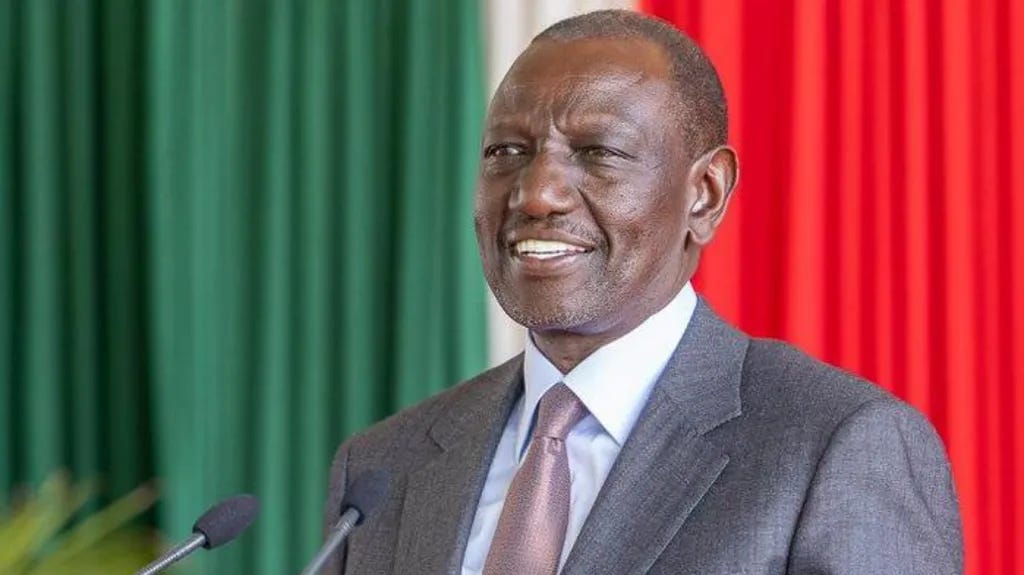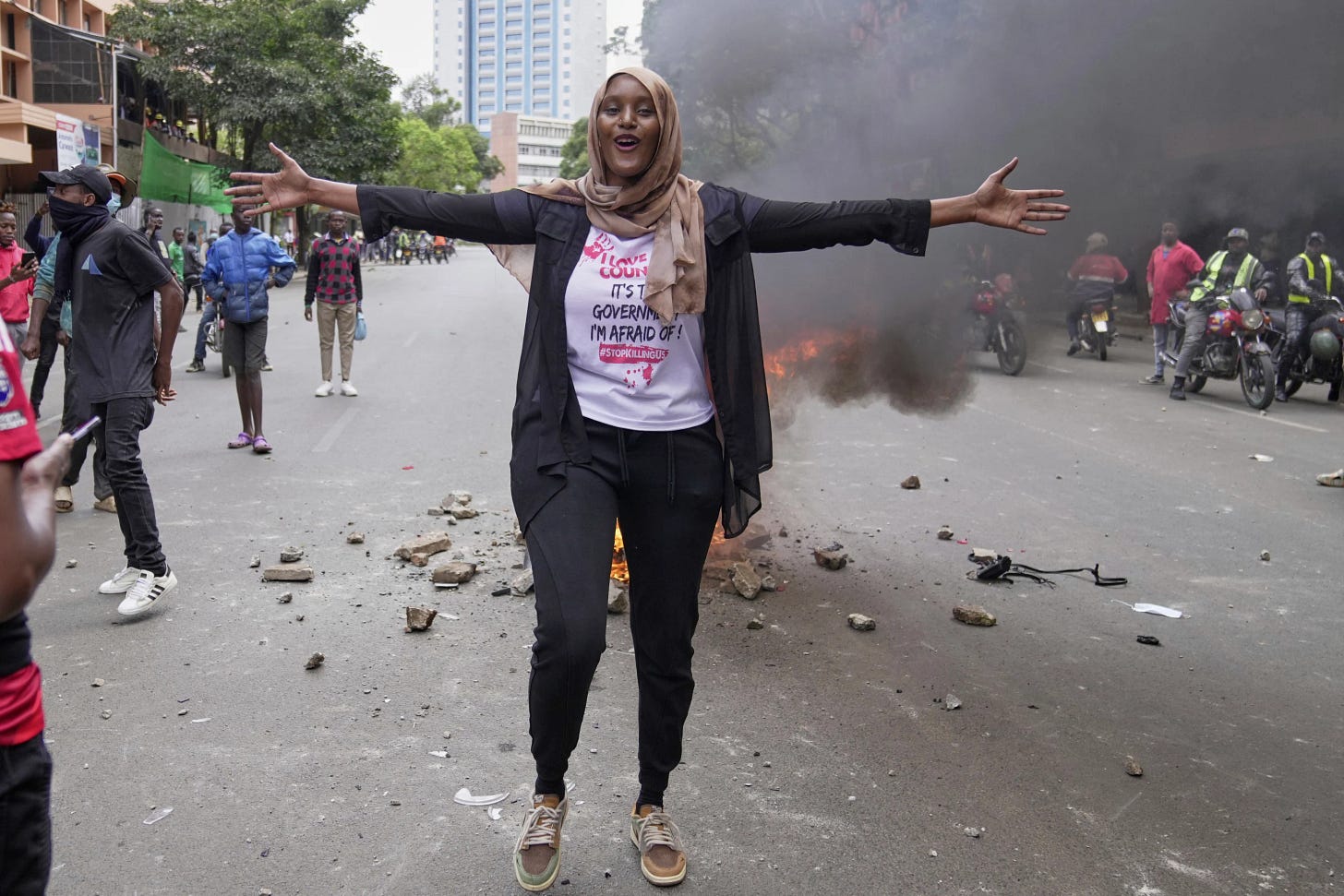Kenya in Crisis: The Death of Albert Ojwang and the Erosion of Public Trust
Nationwide protests erupt after blogger Albert Ojwang dies in police custody, spotlighting state brutality and press freedom concerns in Kenya.
Kenya has been gripped by unrest following the death of blogger Albert Ojwang, who died in police custody after being arrested for criticizing Deputy Inspector General of Police Eliud Lagat on social media and accusing him of corruption. Authorities initially claimed Ojwang died after hitting his head on a cell wall. However, an autopsy revealed signs of torture, sparking mass protests and calls for Lagat’s resignation.
The unrest comes a year after widespread anti-tax protests, during which demonstrators opposed government-backed tax increases. The protests culminated in the storming and burning of Kenya’s Parliament and killed more than 50 people.
Who was Albert Ojwang?
A former teacher and father, news of Albert Ojwang’s death shocked Kenya, where many remembered his influence as “immense.”
“He could never hurt anyone—either online or physically. We have lost a great soul,” his friend and former colleague David Bwakali told The Daily Nation.
“His work ethic was admirable, and his passion was limitless. We are organizing to attend his burial, but there’s an emptiness that words can’t describe.”
According to Kenya’s National Police Service (NPS), Ojwang was arrested in Homa Bay on June 6 “for the offense of false publication” after accusing Deputy Inspector General Eliud Lagat of corruption on social media. He was transported more than 200 miles to the capital, Nairobi, where he died two days later.
Amnesty Kenya, a branch of Amnesty International, reported that an autopsy found signs of blunt force trauma to the head and neck compression—contradicting earlier claims of self-harm.
“His head was swollen, blood oozed from his nose and mouth,” a family lawyer said on Ojwang’s behalf in the report.
Kenyan President William Ruto called Ojwang’s death “heartbreaking and unacceptable” in a statement posted to X.
“I fully expect that the truth about what happened to Ojwang will be established in due course,” Ruto wrote.
In a report by KTN News, Dr. Bernard Midia—the pathologist who conducted the autopsy—confirmed “multiple soft tissue injuries that were spread all over the body.”
“The cause of death is very clear,” Midia said.
“We also have other injuries spread all over the body that point toward assault.”
Douglas Kanja, inspector general of the NPS, later retracted the initial police claim that Ojwang died from self-harm.
“I tender my apology on behalf of the National Police Service for that misinformation,” Kanja said.
“It is not true… he did not hit his head against the wall.”
Following Ojwang’s death, Kenya’s Independent Policing Oversight Authority (IPOA) launched an investigation that led to the arrest of Constable James Mukhwana, the first officer detained in connection with the case.
Deputy Inspector General Lagat resigned as the investigation progressed, telling DW that he opted to “step aside, pending completion.”
“I undertake to provide any support that may be required of me during the investigations of the unfortunate incident,” he said.
A Pattern of Abuse: Kenya’s History of Police Brutality
Ojwang’s death comes a year after the anti-tax protests—also known as the Gen Z protests—a series of demonstrations held across Kenya in response to proposed tax increases. After the legislation passed, thousands of protesters stormed the country’s Parliament and set parts of the complex on fire. Police responded with live ammunition, killing multiple demonstrators and sparking widespread condemnation.
“We urge the state and all parties to de-escalate the situation and stop the use of lethal force to protect life,” Amnesty Kenya said in a statement.
“We can rebuild infrastructure, but we cannot bring back the dead.”
During the unrest, Human Rights Watch (HRW) accused Kenyan authorities of abducting, torturing, and killing individuals believed to be protest organizers.
“The ongoing deadly crackdown on protesters further taints Kenya’s already dismal human rights record,” said Otsieno Namwaya, HRW’s associate Africa director.
“The authorities should end the abductions, publicly denounce rhetoric that attempts to criminalize peaceful protests, and ensure prompt investigation and fair prosecution of security officers credibly implicated in the abuses.”
HRW member Mausi Segun told VOA News that witnesses observed police arresting citizens throughout the demonstrations.
“Whoever the initial abductors were, the police were involved, because people were taken to police stations, and many times the torture happened while people were in police custody,” Segun said.
“Those who are dead—we don't have details of what happened to them—but people who witnessed their abduction said that the individuals who took them away were clearly security agents.”
A report from Al Jazeera detailed attacks on journalists during the protests, including CNN correspondent Larry Madowo being shot by Kenyan officers.
“Kenyan police targeted me directly today,” Madowo said.
“I was hit by a fragment after officers aimed at me and my CNN team at least twice while covering protests in Nairobi.”
In response to the storming of Parliament, President Ruto deployed the military to address what he called “treasonous events,” claiming the protests had been “hijacked by dangerous people who have caused us the kind of loss we have incurred as a nation today.”
“It is not in order or even conceivable that criminals pretending to be peaceful protesters can reign terror against the people, their elected representatives, and the institutions established under our Constitution and expect to go scot-free,” Ruto said, according to The New York Times.
Ruto, who was elected in 2022, had already faced controversy over his indictment by the International Criminal Court (ICC) in connection with post-election violence in 2007.
“That reputation has never gone away,” political analyst Rose Mumanya told The Africa Report.
“Now, with increased cases of police brutality, people are asking whether this is the same man—just with more power. It’s alienating him from the youth because many of the recent victims have been young people, abducted, tortured, and killed.”
Despite the backlash to the legislation, Parliament Majority Leader Kimani Ichung’wah claimed the bill was “crucial” for Kenya’s infrastructure.
“Without the passage of this bill, essential government operations would come to a standstill,” he wrote on X, adding that the most controversial tax provisions had since been removed.
Public Response
Protests broke out following Ojwang’s death, with demonstrators across the country calling for police officers to be held accountable.
“There’s no value for life; they are killing us every day,” journalist and activist Hanifa Adan told NPR.
“We are here demanding justice.”
On Tuesday, riots erupted as protesters and police clashed in Nairobi, resulting in one person killed.
“We see hundreds of paid goons, with whips and crude weapons, coming to brutalize our people,” said Ndungi Githuku, a member of the advocacy group Kongamano La Mapinduzi, in an interview with Al Jazeera, calling Kenya a “lawless country.”
In the same report, Hanifa—who gained prominence during the anti-tax protests—said she was “overwhelmed” after being attacked.
“They cornered us and beat us with whips, and the police were just watching them do it,” she said.
Demonstrations also broke out Tuesday in Mombasa, Kenya’s second-largest city, as public outrage over Ojwang’s death continues to grow.








